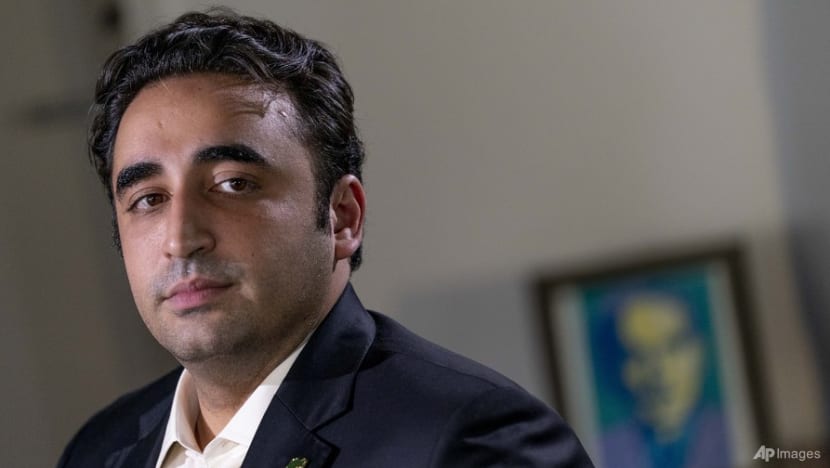Pakistan rejects US accusations after being put on ‘particular concern’ list
Pakistan Foreign Minister Bilawal Bhutto Zardari questioned why India and Israel escaped being designated as "severe" violators of religious freedom, calling the US list "politicised".

Pakistani Foreign Minister Bilawal Bhutto Zardari attends an interview at the Pakistan Embassy in Washington DC, United States on Sep 27, 2022. (Photo: AP/Andrew Harnik)
SINGAPORE: Pakistan Foreign Minister Bilawal Bhutto Zardari has rejected the United States’ listing of his country as a state of “particular concern” over religious freedoms, accusing the US of bias and questioning why India and Israel escaped the list.
The US State Department in November designated 12 countries – which also include China, Iran, Myanmar and North Korea – as “severe” violators of religious freedoms.
“It does seem that this is a slightly biased and politicised list,” Mr Bhutto Zardari told CNA last Friday (Dec 9), while on an official visit to Singapore for trade and bilateral talks.
“Otherwise I do wonder why India is not on the list when its human rights, particularly religious freedom for their Muslim minority, has been a source of concern internationally.
“Another ally of the US in the Middle East … which perpetuates curbs against (its) Muslim minority (and) Palestine” also did not make the list, Mr Bhutto Zardari added, referring to Israel.
Nonetheless, he acknowledged Pakistan’s longstanding issues with religious extremism and violence, and pledged his government’s commitment to tackle them.
“(We) don’t need America to point out the problems that we in Pakistan face with religious extremism, with terrorism. That is a cause that is dear to my heart,” he said.
“We're absolutely cognisant of the challenges we face. And we're serious about facing those challenges. Not because the United States said so or anybody else (said so). It’s because we believe that's important for the future of our country.”
CRITICISM OF INDIA
Mr Bhutto Zardari was deeply critical of Pakistan’s neighbour and longtime rival India during the interview, saying the country has changed for the worse.
“The India I grew up with … it was the largest democracy in the world. It was a secular country, home to all its citizens – Hindus, Muslims, Christians, Buddhists. Unfortunately, the India I see today is not the India I recognise growing up," he said.
“This is an increasingly fascist India. It is hostile to Muslims outside its borders and within its borders, it is hostile to the Christians within its borders,” he added.
Mr Bhutto Zardari accused India of curtailing the freedom of Muslims, especially in Muslim-majority Kashmir, a disputed territory claimed by both countries.
He blamed much of the religious divide and unrest on India Prime Minister Narendra Modi, saying violence against Muslims has increased since Mr Modi’s days as chief minister of Gujarat state, and intensified after he took the country’s helm in 2014.
YOUTH ‘READY FOR PEACE’
However, Mr Bhutto Zardari softened his stance when it came to the youth of both countries, saying they are “ready for peace”.
He pointed out that 65 per cent of Pakistan’s population are youths who want to see economic growth and peaceful engagement with India.
Mr Bhutto Zardari himself is one of the world’s youngest foreign ministers, having taken office in April at the age of 33.
While the younger generation of Pakistanis and Indians want change, Mr Bhutto Zardari said that seeds of rivalry have already been sown, and “the politics of hate need to be overcome by the politics of hope” for the future of diplomacy between the neighbours.
“Unfortunately, both in India and Pakistan, (the youth are) being fed a diet of the politics of hate, the politics of division, the politics of narrow populism, the pursuit of authoritarianism, the politics of lies,” he said.
“But I do have faith in the younger generation, and we will rise to meet the 21st century challenges to democracy … We hope for a tomorrow that is better than today.”

















